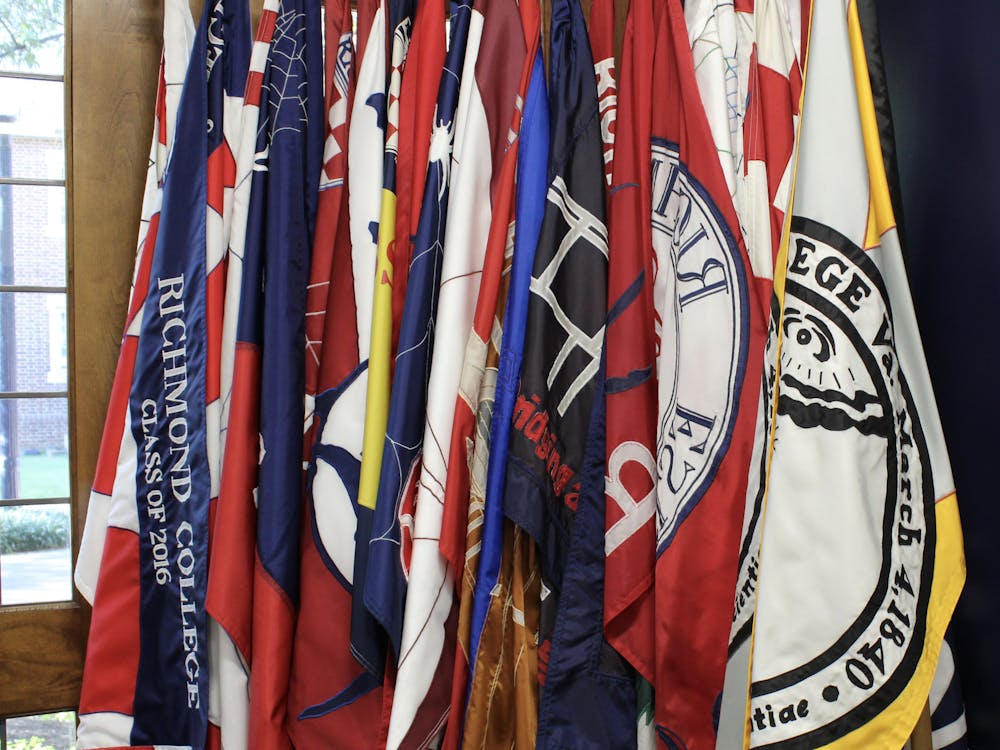Editor's Note: The views and opinions expressed in this article do not reflect those of The Collegian.
Last week, the University of Richmond decided to rescind an offer of admission to Adam Giaquinto because of his participation in an offensive Snapchat video. Giaquinto, a young white man who recently graduated from a private New Jersey high school, recorded and uploaded a video of his friends smoking, eating Doritos and engaging in a pastime common among some white men: casually using the n-word. From behind the camera, you can hear Giaquinto say, “You George Floyd lookin’ motherf--- [racial slur].”
Giaquinto’s racist comments are part of a more pervasive climate of anti-Blackness. His remarks echo the reprehensible “George Floyd Challenge” that mocks the death of a Black man whose last words and breaths escaped his throat while the knee of a white police officer pressed on it. Giaquinto’s indifference to Black life mirrors the continued criminalization and sometimes murder of Black people who are deemed an inconvenience to the day-to-day activities of privileged white people.
UR explained on its Twitter account that Giaquinto’s participation and posting of the offensive Snapchat video violated expectations for "the academic and social/behavioral standards on which admission is based — standards expected of all members of the community." Such a decision is one of many made recently by various U.S. colleges that have been forced to reckon with admitted white students’ racist social media posts. Indeed, according to a 2017 survey conducted by Inside Higher Ed, 14% of private colleges have either revoked or rejected admission because of applicants’ social media posts at least once.
I commend UR for making the difficult decision to bar Giaquinto from attending UR. Our campus community has yet to heal from the spring semester’s series of racist graffiti targeting students of color who vocally challenged white supremacy.
Do we really want to see another Snapchat video of white students gleefully presenting a swastika-covered gingerbread house that they then throw out of their second-floor dorm room window? Or, more racist and ableist comments posted to Yik Yak? Cultural appropriation thinly veiled as a Halloween costume this coming October?
But, I wonder whether UR should have admitted Giaquinto in the first place. Had he convincingly indicated that he already shared or would learn to share our collectively held values of inclusivity, equity, diversity and ethical engagement? Would he contribute to new and ongoing racial justice initiatives, such as the work of the student governments, The Collegian’s commitment to anti-racism, the -Ism Initiative, Interpoint discussions, the student-led push to create an Africana studies program, the Race & Racism Project, Shades of Pride, and honoring the Indigenous and enslaved Black people that documentary evidence suggest are buried beneath university land?
To gauge an applicant’s commitment to anti-racism, to assess whether an applicant meets UR’s “academic and social/behavioral standards on which admission is based,” UR can ask them outright from the start. In particular, UR could require an application essay to detail the concrete ways in which applicants fight white supremacy, promote racial justice, advocate for people of color or – for white applicants specifically – use their racial privilege for some greater good.
Here’s a possible application essay prompt: How will your past and ongoing commitments to promote racial equity and/or fight racial injustice contribute to UR’s collective commitment to diversity, equity and inclusion? (Purdue University Graduate School has another approach to the “diversity essay,” though it is not exclusive to racial justice and is optional.)
An anti-racist application requirement would not allow applicants to sidestep racial justice by talking about the one time they held a door open for a person assisted by a wheelchair or gave $1 to a person experiencing homeless. This would allow UR admissions officers to discern applicants’ genuine, lifelong commitment to racial justice, or at least the potential to adopt such a commitment at UR. Such a critical eye, of course, necessitates training for admissions officers, in part to counter the potential bias against Black applicants who have engaged in anti-racist organizing.
Aside from weeding out applicants who will potentially perpetuate racial prejudice, discrimination and violence at UR, this application requirement also signals how seriously we are committed to the collective promotion of racial justice. Prospective students who desire a college experience that does not entail antiracist training should look elsewhere.
Accordingly, we also need to beef up the anti-racist training offered to our students, no matter their major. This could, perhaps, take the form of a new general education requirement that could be fulfilled by courses in a newly formed Department of Africana Studies, among other relevant disciplines. Faculty should receive extensive anti-racist training and be held accountable for employing anti-racist pedagogy in our classes. We can then, in good conscience, sanction current students (and faculty) who violate our shared value of racial justice.
Enjoy what you're reading?
Signup for our newsletter
Better yet, we could institute an assessment of students’ anti-racist education and actions required for graduation. Perhaps, then, we can avoid having to do damage control for current students’ ignorance that becomes fodder for embarrassing news stories in the future. We must ensure that the graduates who we proudly send out into the world are true representatives of our institutional values: upstanding, compassionate people with a deep commitment to racial and other forms of justice.
Contact contributor Eric Anthony Grollman at egrollma@richmond.edu.
Support independent student media
You can make a tax-deductible donation by clicking the button below, which takes you to our secure PayPal account. The page is set up to receive contributions in whatever amount you designate. We look forward to using the money we raise to further our mission of providing honest and accurate information to students, faculty, staff, alumni and others in the general public.
Donate Now


